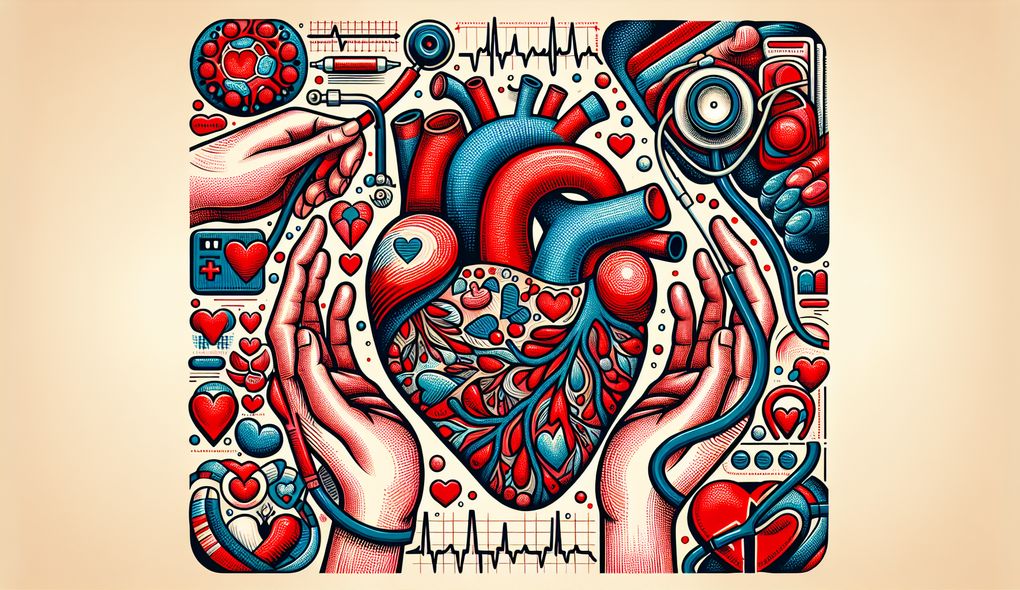How do you manage the emotional and psychological impact of adult congenital heart disease on patients and their families?
INTERMEDIATE LEVEL

Sample answer to the question:
As an Adult Congenital Heart Disease Specialist, I understand the emotional and psychological impact of the condition on patients and their families. I believe in providing comprehensive care that addresses both the physical and emotional well-being of my patients. I take the time to listen to their concerns and provide guidance and support throughout their treatment journey. I also work closely with psychologists and social workers to ensure that patients and their families have access to the resources they need. By taking a holistic approach to care, I aim to improve the overall quality of life for my patients and their loved ones.
Here is a more solid answer:
As an Adult Congenital Heart Disease Specialist, I have a deep understanding of the emotional and psychological impact of the condition on patients and their families. Through my experience, I have witnessed firsthand the challenges and fears that patients face. I use my strong communication skills to create a safe and supportive environment where patients feel comfortable expressing their emotions. I collaborate with psychologists and social workers to provide counseling and mental health support to patients and their families. Additionally, I work closely with a multidisciplinary team, including cardiologists, surgeons, and nurses, to develop individualized care plans that address both the medical and emotional needs of patients. By integrating psychological support into the treatment process, I aim to improve patient outcomes and enhance their overall well-being.
Why is this a more solid answer?
The solid answer expands on the basic answer by providing specific details about the candidate's understanding of the emotional and psychological impact of adult congenital heart disease and their ability to communicate effectively with patients. Additionally, it highlights the candidate's collaboration with a multidisciplinary team. To improve further, the candidate can provide more examples or anecdotes illustrating their experience in managing the emotional and psychological impact.
An example of a exceptional answer:
As an Adult Congenital Heart Disease Specialist, I have developed a comprehensive approach to managing the emotional and psychological impact of the condition on patients and their families. I stay up-to-date with the latest research and advancements in the field to ensure that I provide the most effective and evidence-based care. I have conducted research studies on the psychological aspects of adult congenital heart disease and have presented my findings at national conferences. In my practice, I utilize a combination of evidence-based therapies, such as cognitive-behavioral therapy and mindfulness techniques, to help patients cope with anxiety and depression. I also collaborate closely with support groups and advocacy organizations to connect patients and their families with additional resources and peer support. By addressing the emotional and psychological needs of my patients, I aim to improve their overall quality of life and empower them to actively participate in their own healthcare journey.
Why is this an exceptional answer?
The exceptional answer goes above and beyond by showcasing the candidate's dedication to ongoing education and research in the field of adult congenital heart disease. It highlights the candidate's involvement in research studies and their use of evidence-based therapies. Additionally, it emphasizes the candidate's collaboration with support groups and advocacy organizations. To further enhance the answer, the candidate can provide specific examples of the therapies and resources they utilize in their practice.
How to prepare for this question:
- Stay updated with the latest research and advancements in adult congenital heart disease, especially in the field of psychological and emotional well-being of patients.
- Develop strong communication skills to effectively counsel and support patients and their families.
- Collaborate with psychologists, social workers, and other healthcare professionals to ensure comprehensive patient-centered care.
- Attend conferences, workshops, and continuing education programs to stay informed about the latest treatment modalities and research findings in the field.
- Engage in interdisciplinary discussions and case studies to broaden your understanding of the emotional and psychological impact of adult congenital heart disease.
- Join support groups and advocacy organizations to connect with patients and their families and gain insights into their experiences.
What are interviewers evaluating with this question?
- In-depth knowledge of adult congenital heart disease
- Strong communication skills for effective patient counseling
- Ability to mobilize a multidisciplinary team for patient-centered care

